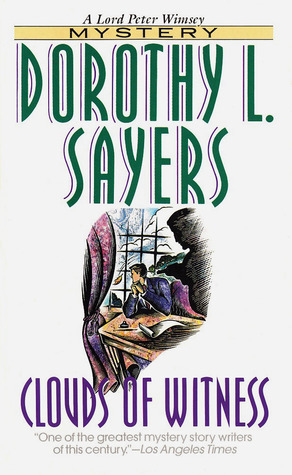What do you think?
Rate this book


288 pages, Mass Market Paperback
First published January 1, 1926



 Lord Peter while still insouciant is no longer Bertie Wooster playing at detectives. His is a well rounded character who lives a life filled with varied interests as well as his work as an amateur sleuth.
Lord Peter while still insouciant is no longer Bertie Wooster playing at detectives. His is a well rounded character who lives a life filled with varied interests as well as his work as an amateur sleuth.'My dear child, you can give it a long name if you like, but I'm an old-fashioned woman and I call it mother-wit, and it's so rare for a man to have it that if he does you write a book about him and call him Sherlock Holmes.'I'll avoid quoting half of the book, but its greatest strength is the humour. Some of it is profound, some ordinary, but it is never dull.